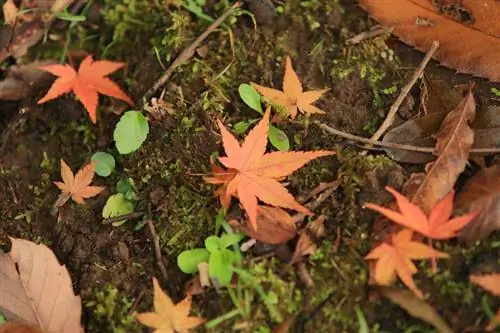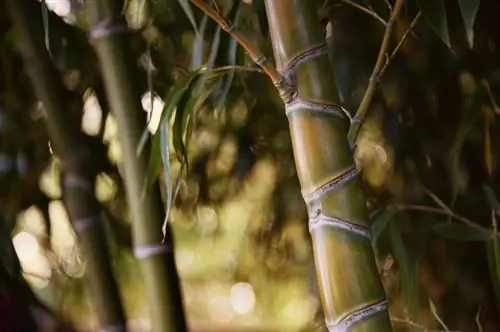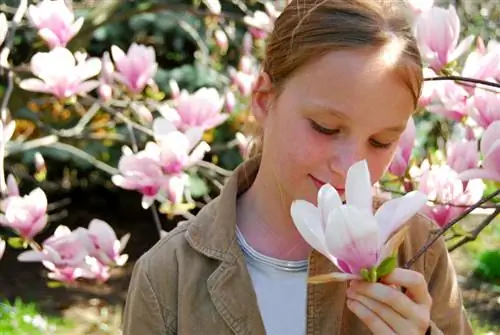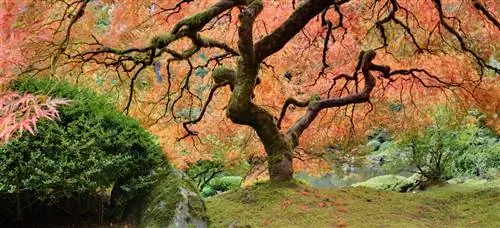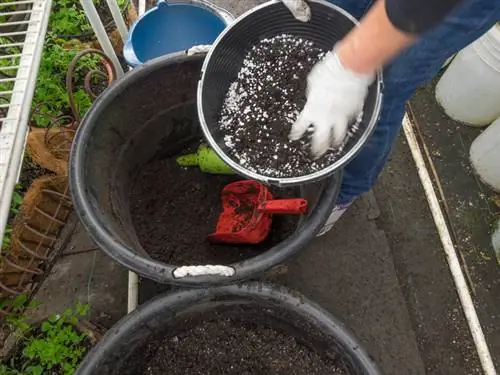- Author admin leonars@hobbygardeners.com.
- Public 2023-12-16 16:46.
- Last modified 2025-01-23 11:20.
The Japanese maple or Japanese maple (Acer palmatum) needs a sunny to partially shaded location with a permeable, loose substrate. The otherwise easy-care ornamental tree does not tolerate waterlogging particularly well, nor does it tolerate clay and/or calcareous soil with a high pH value.
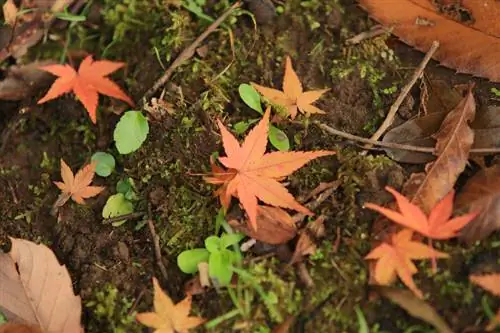
Which soil is suitable for the Japanese maple?
The Japanese maple prefers sandy, loose, nutrient-rich and slightly moist soil with an acidic to neutral pH value. You can improve heavy clay soil by adding peat or sand. It is also recommended to add well-rotted leaves to the excavation.
Prepare the soil well before planting
The Japanese maple loves sandy, loose, nutrient-rich and slightly moist soil with an acidic to neutral pH value most of all. Before you plant the tree, you should prepare the garden soil accordingly:
- Dig up the soil thoroughly and loosen it up.
- Heavy clay soil can be improved by mixing in peat (€15.00 on Amazon) or sand.
- In addition, well-rotted leaves should be mixed into the excavation.
After planting, mulch the root area so that the tree does not dry out. However, waterlogging is not tolerated at all and should therefore be avoided urgently.
Tip
The Japanese maple - so called because of the characteristic shape of its leaves - is also ideal for growing in a container, provided you plant the tree in special container planting soil and ensure good drainage.

